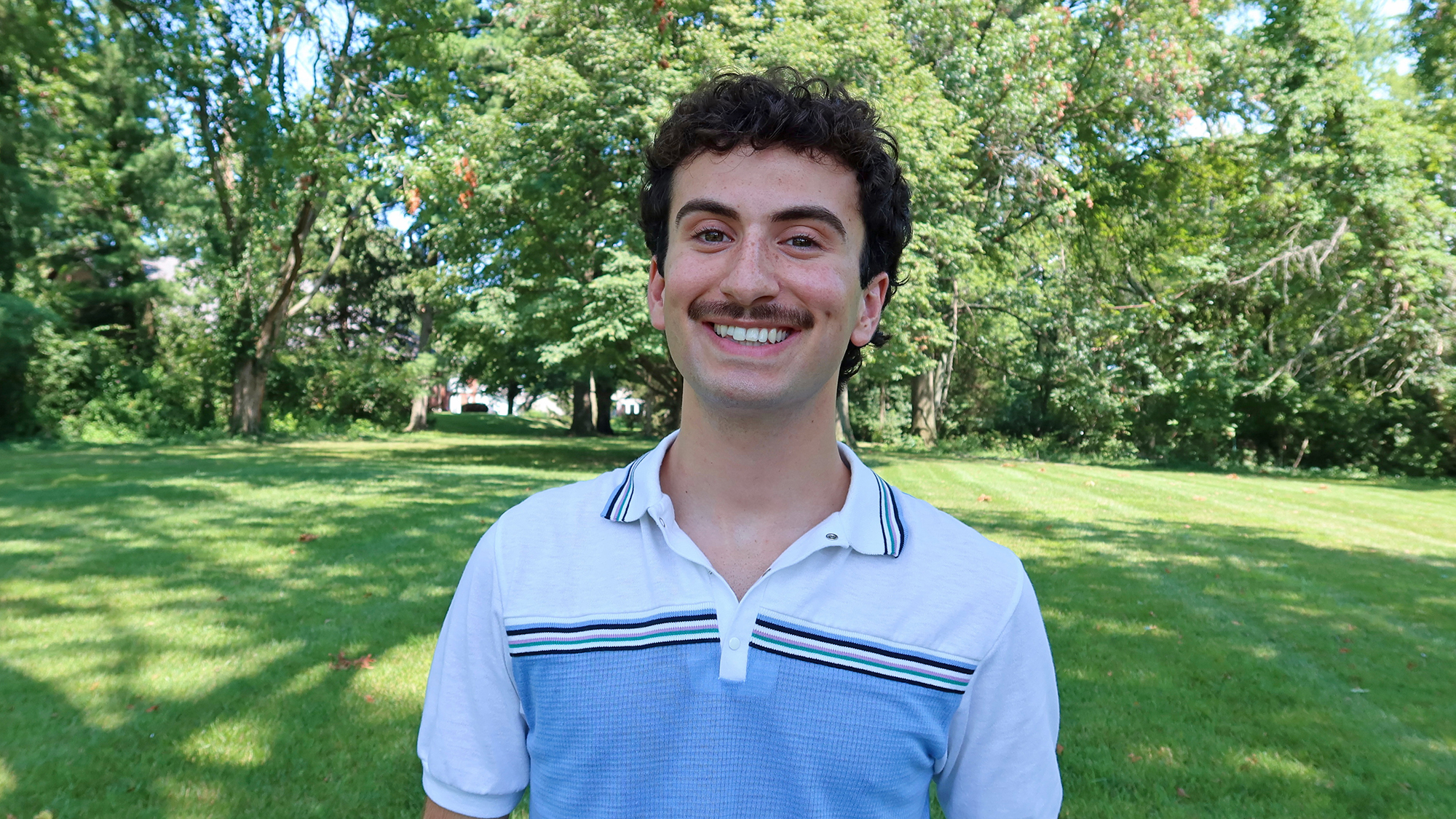Public Health Buckeyes: Maxwell Schoen
Public health sociology major strives to promote culturally competent health care
By Kristen Mitchell

Maxwell Schoen’s passion for public health is rooted in his desire for all people to have the opportunity to live healthy lives. As a third-year public health sociology student, he’s engaging in community-based research and focused on his dream of becoming a physician who contributes to systemic change.
Schoen shares what he enjoys most about being a student at the College of Public Health and the projects that kept him busy this summer.
Question:
What inspired you to pursue a degree in public health?
I’ve known I wanted to go into the medical field for a while, but growing up it was hard not to acknowledge the flaws in the health care system. High costs, insurance gaps, language barriers, implicit bias, mistrust and other factors cause some populations to experience worse health outcomes, and I knew I wanted to be involved in changing that. Public health appeared as the obvious choice for a major. I wanted to understand people, and not just their medical profile, but the social and environmental factors that could have led to their diagnosis.
Question:
What public health topics are you most passionate about?
I’m passionate about chronic disease prevention, specifically cancer, and addressing disparities in prevention and treatment. My experiences in public health have mainly revolved around health equity. I believe everyone should have the same opportunity to live the healthiest lives possible, regardless of their gender, sexual identity, race, income or where they live.
I’m particularly passionate about LGBTQ+ health equity and overall cultural competence in health care. I’ve also become more interested in nicotine and tobacco control as a lot of the research I do is related to smoking and vaping cessation campaigns.
Question:
What do you enjoy most about being a student at the College of Public Health?
I met one of my best friends through the college! My first class of freshman year was Critical Issues in Global Public Health, which, like most public health classes at Ohio State, was pretty small. This environment allowed me to connect with my classmates and foster relationships that went beyond the classroom. Now, my friend and I work in the same research lab, are both pursuing master’s degrees and will be living together this year. The close-knit community in the college of public health has truly shaped my college experience in the best way.
Question:
You’re involved in public health research. What is your favorite part of doing that work?
I value the opportunity to hear people’s stories. In my work, I facilitate and analyze focus groups and interviews with LGBTQ+ community members in Columbus, gaining insight into how lived experiences shape health in ways many health care professionals may not see. One of my most meaningful projects has been the Greater Columbus INSIGHT study, a community health needs assessment aimed at improving the wellness of LGBTQ+ people. Findings could guide health priorities, program development, grant applications, policy and progress tracking. Learning from my mentors and peers in the lab has strengthened my skills in conducting research and turning findings into meaningful public health initiatives.
Question:
What did you do this summer?
This summer has been quite busy! I continued my work in Assistant Professor Joanne Patterson’s Practice and Science for LGBTQ+ Health Equity research lab and my first paper was published in the journal Nicotine and Tobacco Research. I also started a position at the Rainbow Clinic in the Columbus Free Clinic. In this role, I’ve been doing quality improvement analysis and volunteering to register patients on clinic days.
I also took three summer classes: Environmental Justice, Sociology of Health and Illness, and Gender, Sexuality and Race in Pop Culture, and I completed an accelerated State Tested Nurse Aide (STNA) certification program so I can gain more experience in direct patient care.
Question:
What are your goals for the future?
I’m going to apply to the combined BSPH/MPH program in Health Behavior and Health Promotion this year. After I complete that, I plan to attend medical school. While I haven’t decided on a specialty yet, I know I want to work with underserved populations and continue advocating for health equity. I hope to stay involved in community-based research, using both my public health and clinical training to bridge gaps in care, inform policy and promote culturally competent health care.
My ultimate goal is to be a physician who not only treats individual patients but also contributes to systemic change through research, advocacy and education.
About The Ohio State University College of Public Health
The Ohio State University College of Public Health is a leader in educating students, creating new knowledge through research, and improving the livelihoods and well-being of people in Ohio and beyond. The College's divisions include biostatistics, environmental health sciences, epidemiology, health behavior and health promotion, and health services management and policy. It is ranked 22nd among all colleges and programs of public health in the nation, and first in Ohio, by U.S. News and World Report. Its specialty programs are also considered among the best in the country. The MHA program is ranked 5th and the health policy and management specialty is ranked 21st.